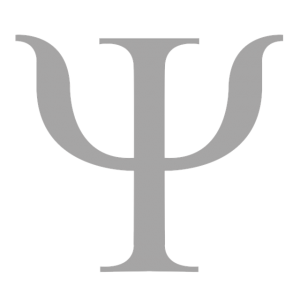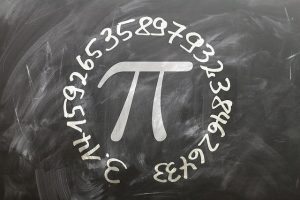Lucky 7
 What’s your lucky number? Is it 7? Did you know that 7 is the world’s favourite number and even if it isn’t their number one choice many people have a special liking for it. But how could that be? With people coming from all kinds of cultural, ethnical and religious backgrounds, how is it even possible that they’d all share a preference for a number? Let’s explore the reasons for 7’s popularity.
What’s your lucky number? Is it 7? Did you know that 7 is the world’s favourite number and even if it isn’t their number one choice many people have a special liking for it. But how could that be? With people coming from all kinds of cultural, ethnical and religious backgrounds, how is it even possible that they’d all share a preference for a number? Let’s explore the reasons for 7’s popularity.
Chinese Culture
 In traditional Chinese culture, seven stands for the combination of Yin, Yang and the Five Elements (Metal, Wood, Water, Fire and Earth). As such, it represents harmony and beauty. It is commonly used in proverbs and sayings. Moreover, the seventh day of the seventh month, i.e. July 7th, is the Chinese Valentine’s Day.
In traditional Chinese culture, seven stands for the combination of Yin, Yang and the Five Elements (Metal, Wood, Water, Fire and Earth). As such, it represents harmony and beauty. It is commonly used in proverbs and sayings. Moreover, the seventh day of the seventh month, i.e. July 7th, is the Chinese Valentine’s Day.
Christianity
 Seven stands for physical and spiritual perfection. That’s why it’s no surprise that it appears a record-breaking number of times in the Bible. There are many examples of seven being good, including the creation but the most wide-spread one being that god created the world in seven days. However, let’s not forget about the seven deadly sins.
Seven stands for physical and spiritual perfection. That’s why it’s no surprise that it appears a record-breaking number of times in the Bible. There are many examples of seven being good, including the creation but the most wide-spread one being that god created the world in seven days. However, let’s not forget about the seven deadly sins.
Psychology
 According to a popular psychological experiment, when people are asked to give a random number between 1 and 10, most of them think of 7. Allegedly, 1 and 10 do not seem statistically random and 2 and 9 are excluded for a similar reason. Five is also dismissed because it’s right in the middle and even numbers don’t seem trustworthy for some reason. Thus, most people go with 7.
According to a popular psychological experiment, when people are asked to give a random number between 1 and 10, most of them think of 7. Allegedly, 1 and 10 do not seem statistically random and 2 and 9 are excluded for a similar reason. Five is also dismissed because it’s right in the middle and even numbers don’t seem trustworthy for some reason. Thus, most people go with 7.
Science
Back in the 1950s, psychologists declared seven the magic number after conducting many experiments that led to the conclusion that the working memory of a typical person allows them to remember exactly 7 items. That would explain why many people have trouble remembering longer telephone numbers even if they are their own.
Popular Culture
The number seven is very well-presented in popular culture with quite a number of instances in classical literature, art and sports. Think of the seven dwarves in Snow White, the seventh son of the seventh son having magical powers, and so on. Have you heard of the seven ages of man? William Shakespeare presents the concept in a famous monologue from As You Like It.
Conclusion
Seven may not be any more special than any other number but people attributing luck to it does have a powerful influence. And in this case, it’s not just a couple of people here and there, it’s the whole world joining in, despite their belonging to a religious, cultural, etc. group, to associate it with overpowering good luck. The power of joined wishful thinking shouldn’t be underestimated. Irrespective if it is for good or for bad. As far as casino games are concerned, it’s most certainly a 7 you want to see on a winning payline of a fruit machine, no other number would do. After all, there are 7 seas, 7 continents and 7 days of the week, so seven must be a lucky number.

 If you think those statements are naïve, think again. Whether you like it or not, numbers and their interpretations have a very long history. It started in 6th century BC in Ancient Greece when the great mathematician and philosopher Pythagoras, whom you probably associate mostly with the Pythagorean theorem, said that “the world is built upon the power of numbers.” He believed that the universe is made of mathematical patterns and that numbers, which correspond to universal vibrations, can be used to represent all things around us. Those statements are at the heart of Pythagorean numerology, which is at the heart of modern numerology.
If you think those statements are naïve, think again. Whether you like it or not, numbers and their interpretations have a very long history. It started in 6th century BC in Ancient Greece when the great mathematician and philosopher Pythagoras, whom you probably associate mostly with the Pythagorean theorem, said that “the world is built upon the power of numbers.” He believed that the universe is made of mathematical patterns and that numbers, which correspond to universal vibrations, can be used to represent all things around us. Those statements are at the heart of Pythagorean numerology, which is at the heart of modern numerology.